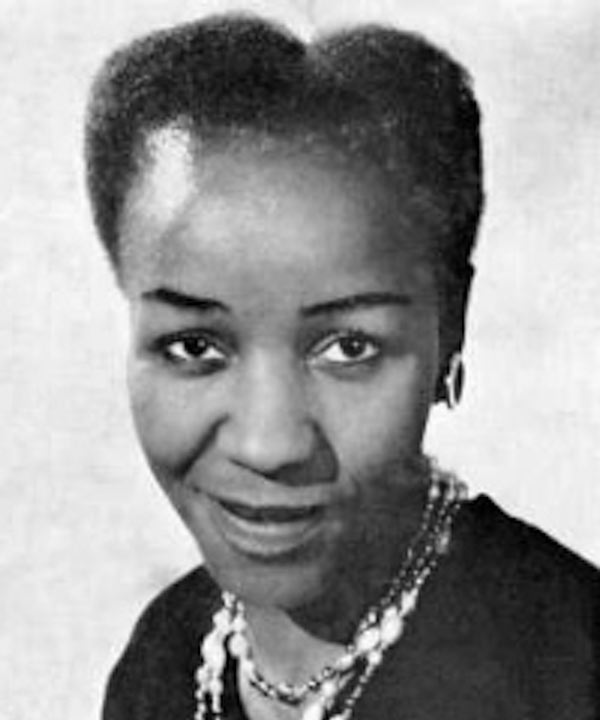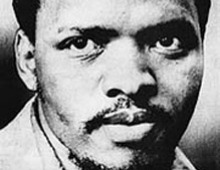Phindile Xaba
Writer and journalist Helen Nontando “Noni” Jabavu was a pioneer in many fields. She was the first black South African woman to publish autobiographies. In a remarkable career, she studied music, was a prolific writer, had a stint as a radio host for the BBC and worked as a film technician, semi-skilled engineer and oxyacetylene welder, working on bomber engine parts during the Second World War.
Helen Nontando Jabavu was born on August 20 1919 into a family of literary figures and highly regarded intellectuals. Her grandfather, John Tengo Jabavu (1859-1921), made his name as the editor of South Africa’s first newspaper to be written in Xhosa – Isigidimi samaXhosa – in 1876. Her father Davidson Don Tengo Jabavu (1885-1959), a politician turned journalist founded and became the editor of the first Black-owned newspaper in 1884 called Imvo Zabantsundu (Black Opinion). So the apple did not fall far from the tree.

Helen Nontando ‘Noni” Jabavu first South African black woman to write autobiographies. Sourced: johannesburgreviewofbooks.com
Her life pre and post Second World War
She would popularly be known as Noni Jabavu in the later years of her life. She was born in Middledrift, in the Eastern Cape to Thandiswa Florence Makiwane, a hard-working woman and founder of Zenzele Woman’s Self-Improvement Association and her activist and author husband Davidson Don Tengo Jabavu.
When she was 13, Jabavu was sent to England where she enrolled at The Mount School in York under the guardianship of Margaret and Arthur Bevington Gillett, a London banker and co-partner at Gillet and Co. She also received valuable guidance and support from Parvati Krishnan and her politician brother Mohan Kumaramangalam who was born in London but was a member of the Communist Party of India.
Jabavu lived there for many years while carving a career in multi-media. She would later become a writer, author, journalist and editor. In later years she would go on to study at London’s Royal Academy of Music, but just before the Second World War she had become disinterested in the academy and concentrated on left-wing student politics, which would shape her world outlook as a writer.
She would progressively give up her studies as a film technician. At the outbreak of the war she trained to become a semi-skilled engineer and oxyacetylene welder, working on bomber engine parts. After the war she remained in London, becoming a feature writer and television personality, working for the BBC as a presenter and producer.

Helen Nontando ‘Noni” Jabavu first South African black woman to write autobiographies. Sourced: johannesburgreviewofbooks.com
Tough love choices
Jabavu met and married English film director Michael Cabury Crosfield in 1951. That would drastically cut her periodical pilgrimages to South Africa he could not accompany her at the time because of the apartheid regime’s Immorality Act which did not allow mixed-race marriages. She would later move to Mozambique, Uganda and Zimbabwe.
In 1955 Jabavu returned to South Africa for a three-month stay. Her first book Drawn in Colour: African Contrasts – a memoir inspired by that trip – was only published in 1960. Drawn in Colour was well-reviewed on both sides of the Atlantic.
As Kirkus Reviews wrote:
“This book richly deserves the high praise it has received in England where it was first published. The author, who is married to a British film director, tells of a voyage home to South Africa for the funeral of her brother who had been murdered by a gangster in Jo’burg, and of her vein attempts to save the marriage of her sister to a man in Uganda. Although concerned with two family tragedies, the story is neither sad nor morbid. A wealth of detail about African life and custom and graphic descriptions of the country itself keep the reader engrossed whenever the principal actors leave the scene temporarily. It is strongly flavoured with the Xhosa language, which translates most nearly into poetic Elizabethan English.”
In 1961 she and her husband moved to Jamaica, where he worked as films adviser to the government there. During that time she worked as the first African woman to ever become editor of a British literary magazine starting in 1961 – The New Strand. It was a revived version of The Strand Magazine, which had closed in 1950.
Returning to London in 1963 prompted her to author her second book, The Ochre People: Scenes from a South African Life, yet another memoir, of which she said: “It is a personal account of an individual African’s experiences and impressions of the differences between East and South Africans in their contact with Westernisation.”
It too received acclaim, hailed by critics as “brilliant” and “fascinating”.
Final years
During time spent in South Africa in 1976-77, researching a book about her father, Jabavu published a weekly column in the Eastern London newspaper the Daily Dispatch, under the editorship of the famed Donald Woods.
She was also awarded a lifetime achievement award by former Arts and Culture Minister Pallo Jordan as well as a best literature award in the Eastern Cape by the then Sports, Arts and Culture Minister Nosimo Balindlela when the ANC took the helm of governing the country in 1994.
Noni Jabavu died in June 2008 at the age of 88 and was buried in East London.
First published in thejournalist.org on 25 October, 2016.
In collaboration with Mail and Guardian
![]()
Facebook: Mail & Guardian
Twitter: @mailandguardian
Instagram: @mailandguardian
LinkedIn: Mail & Guardian










